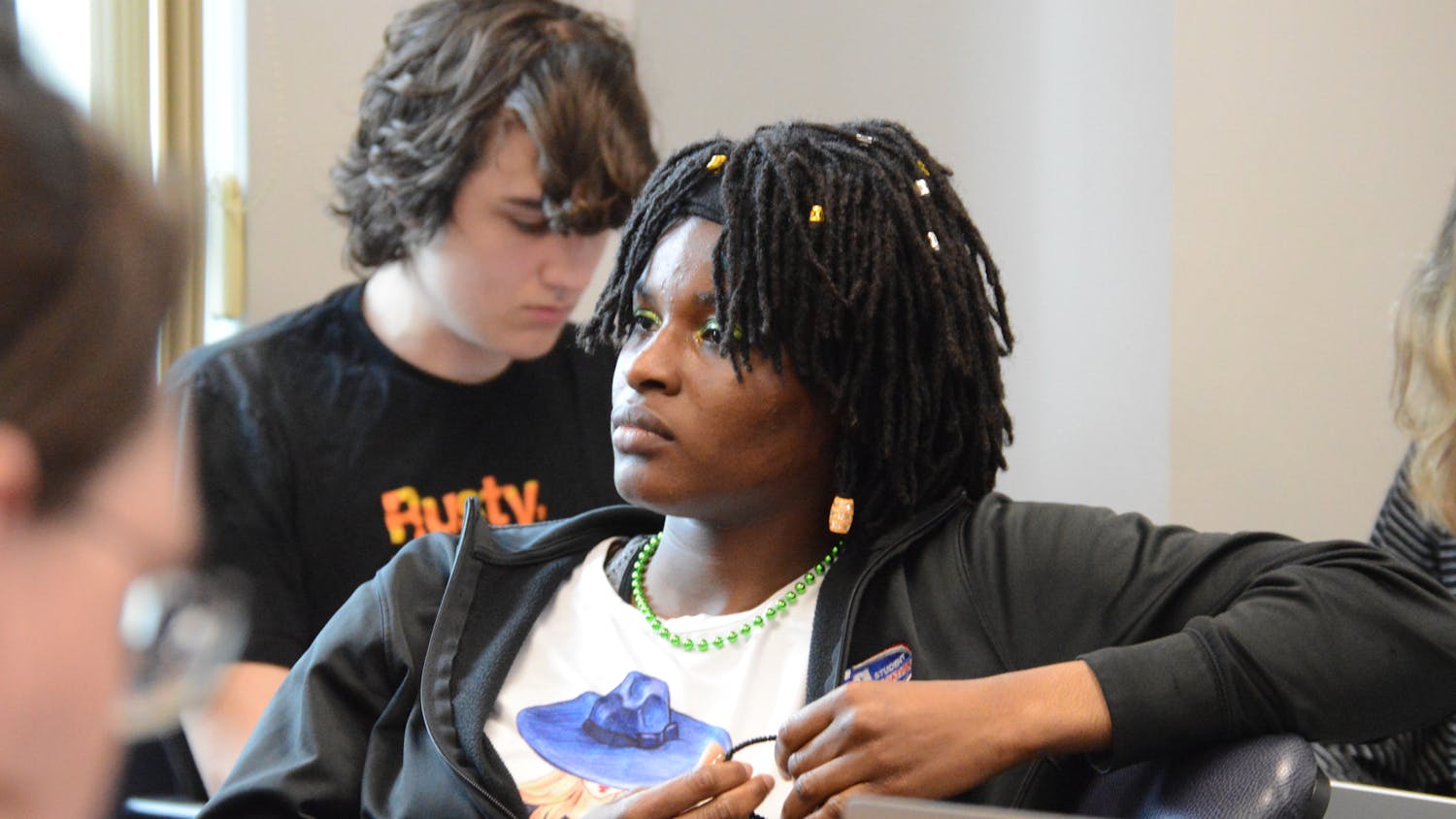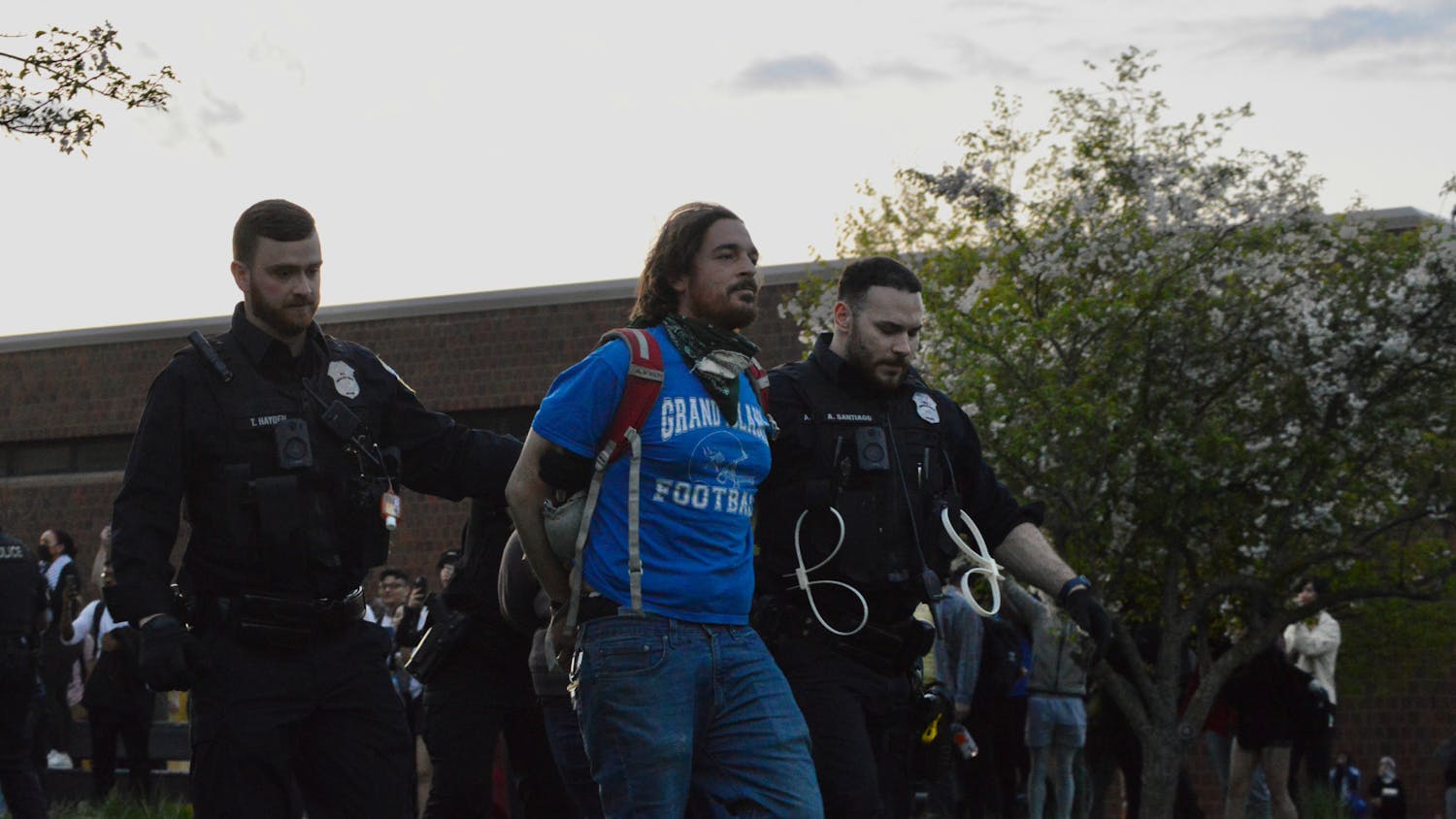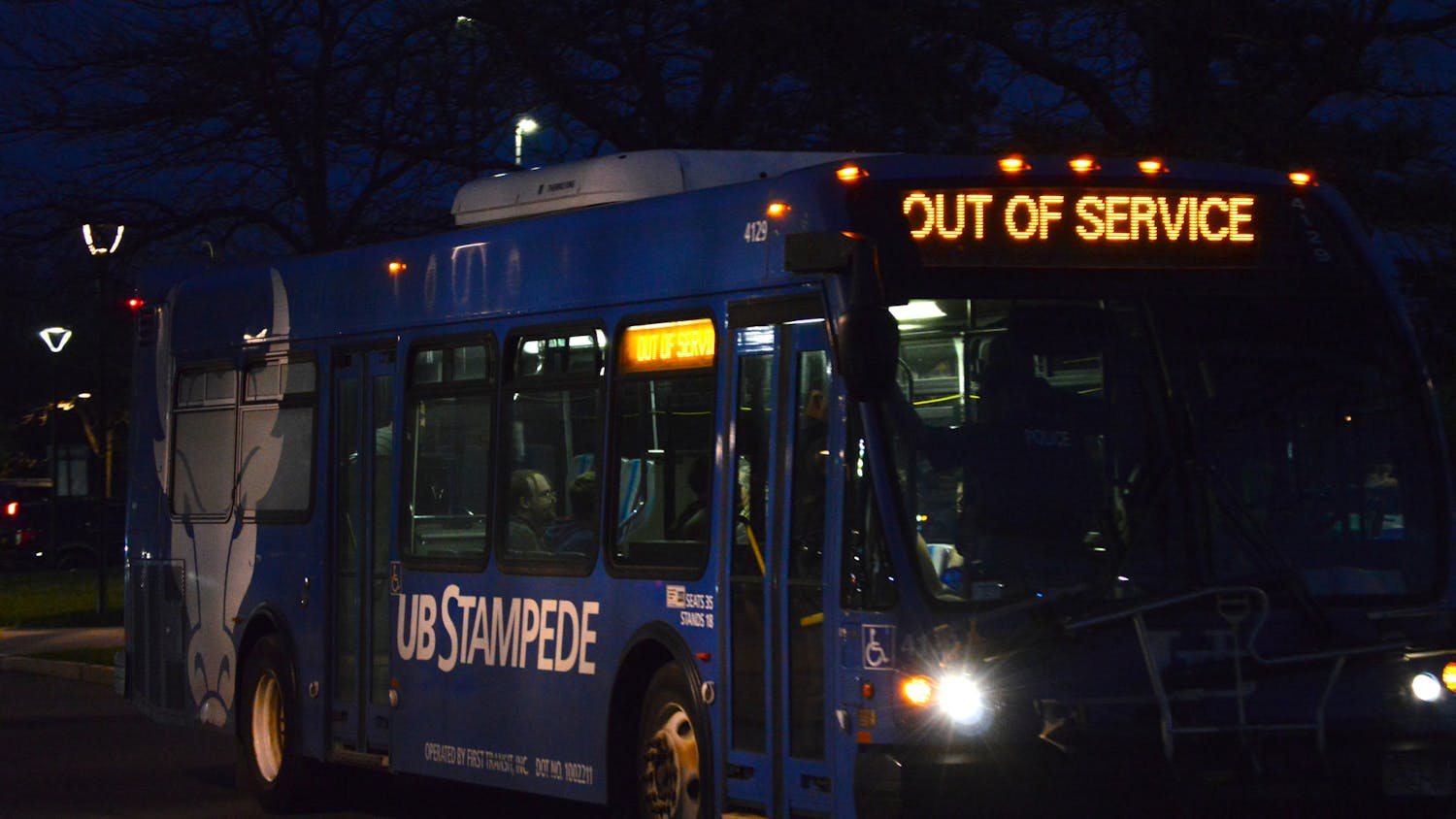Teresa Miller has been taking students to prisons for more than a decade. She isn't a police officer putting them away into cells - she is a SUNY Buffalo Law School professor.
She doesn't just lecture about the prison system. She makes it reality for her students.
Miller reaches for a deeper understanding of prison culture. She connects with inmates. She learns their pasts, understands how they've changed and recognizes they could have been valuable members of society.
Miller brings her to students to see those who have been convicted in the flesh. She said bringing students to prisons helps them understand the law.
"We can study law in a vacuum," Miller said. "But until you're there and you see the context to which the laws apply, you don't understand."
Miller brings her students to the source so they can grasp that deeper understanding through the field trips.
Prisons are not school laboratories ? they are heavily secured institutions with strict protocol. The Attica Correctional Facility, a maximum-security prison and the epicenter of what is known as America's deadliest prison riot is the focus Miller's work.
Thirty-nine people died in the 1971 Attica Prison riot.
Vanessa Glushefski, a second-year law student, took Prisoner Law in the fall with Miller and visited Attica Correctional Facility, Wende Correctional Facility and Albion Correctional Facility. The first two are maximum-security men's prisons; the latter is a women's medium-security prison.
"I think it helps people to really examine their own perceptions and prejudices and to really kind of rationalize what is reasonable or not," Glushefski said.
"While at Attica, I saw a prisoner ? an elderly man who looked about 60 or 70 ? running around in one of the outdoor cages reserved for prisoners under keep-lock," Glushefski explained, as she reflected on her prison visit experience in an email. "These cages look to be about the size of a small room surrounded by tall fences and barbed wire at the top. The scene was very reminiscent of a dog running around in a cage. It was extremely disturbing."
However, as much as these prison visits can be insightful learning experiences, they can also be very overwhelming for some. Miller has had students experience trauma.
"This particularly happens with women's prisons, with female students, because the big things that predate incarceration for women are sexual abuse at an early age [and] domestic violence, and those are experiences that other women have had as well," Miller said. "Students started to have nightmares."
Miller said she never had such experiences and the situation surprised her. She got in touch with psych services to assist her students.
Miller did, however, have unpleasant experiences at the prison.
"You cannot wear an underwire bra into Attica," Miller said. "It means that if you accidentally forget, you have to take your bra off. You have to go through the security without it, with everybody in the room looking, and then you just do with your shirt on but no bra on.
"So yeah, I had those days when I accidentally forgot and dressed normally, and those days [were] not fun days."
Miller is a filmmaker and advocate. She gives a voice to those who are not heard beyond the unrelenting walls of correctional facilities.
"I tend to tell people rehabilitation implies that something that the government is doing is changing our behavior," Miller said. "What I tend to see more than rehabilitation is redemption. I see people come to grips with having done really horrific things and hurt a lot of people."
Miller came to UB after realizing she didn't want to answer to a boss anymore, like she did as an attorney clerking for a federal judge. Preferring the autonomy of an academic, Miller moved to Buffalo from Miami in 1995.
The transition marked the start of her 18-year dedication to prison research and prisoners' rights advocacy.
Miller recognized the prisons around Buffalo provide an invaluable opportunity to study the prison system.
"I thought this is a laboratory, this is an opportunity for me to really study and learn about how we're coping with problems that we have in society," Miller said. "I was excited in an odd way."
Miller said she was never fearful of speaking to inmates.
"I connected with them very easily; they were very polite," Miller said. "And most prisoners I've talked to - the people that I bring students to talk [to] - are the model inmates. They're the people who've made the right choices - they've done all the right things."
She built a rapport with the correctional officers and prison administrators, too. Through her interactions with them over the years, Miller realized the importance of getting the public's attention on the prison system and its problems.
"There are fewer and fewer degrees of separation between anyone on the outside of the prison system and anyone on the inside," Miller explained. "Many more people have a friend or loved one or someone they know that's incarcerated. So what happens in places like Attica affects us just simply because we are so much closer to the experience."
Miller said the guards at Attica were operating on a model much like "the Jim Crow South," back in '71 while inmates were "just fresh off the streets" - many in the middle of the Civil Rights Movement.
"And the problem for Attica was that these two cultures collided," Miller asserted. "So it's vitally important that people on the outside understand what's going on [in] the inside, so we don't have that disconnect and then that clash of two cultures, [which] was just a very explosive situation."
In order to get her message across, Miller uses media as a vehicle of dissemination. She has already produced two short documentaries: Encountering Attica and 4 Myths About Attica. Her third documentary, Attica: The Bars That Bind Us, will be a feature-length film that "takes a unique look at the human costs of working and living in a large men's maximum-security prison," according to indiegogo.com, a website that hosts the documentary's fundraising campaign.
Miller believes making these documentaries is a good way of making the public aware and getting her messages across.
"Sometimes [legal education and scholarly legal writing] can be obscure, and the nice thing about [using media] is it's more accessible," Miller said.
Her colleague, Charles Ewing, a SUNY distinguished service professor and vice dean for academic affairs at the SUNY Buffalo Law School,agrees.
"She's an accomplished filmmaker, and she's been able to use her filmmaking skills to give the public an idea of what life in prison is like," Ewing said. "And from my experience, no one else in the law teaching profession has ever done that."
She shared what she has observed after spending years in prisons and her thoughts on the criminal justice system.
She works with the Attica Lifers Group. It consists of inmates who are trying to make Attica into a better living environment, according to Miller.
"I have never seen a more focused group of men, focused on making the environment in Attica livable," Miller said.
The men create sports programs and mentor in counseling programs to help control violence.
"They [could] be activists in their community," Miller said. "But the sad truth is, when they came into prison, they were running the streets, they were hurting people, they were getting into trouble."
Miller said more must be done to reduce crime in society. She said investing in communities, especially poor communities, would do more than incarcerating people.
The professor and mother of three coaches girls middle school basketball; she said coaching is a way to keep kids doing things that are positive. Basketball keeps kids in an environment where someone is always a role model, where someone is always rooting for them, and according to Miller, they become less likely to get "claimed by the streets."
Email: news@ubspectrum.com





